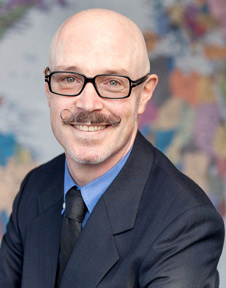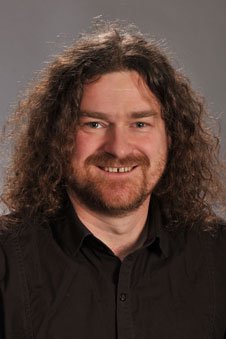 Monday, 9 July 2018
Monday, 9 July 2018
Professor Robin Gauld
Eight years after the Government called for more clinical governance in the health system to help improve patient care and safety, University of Otago researchers have found little has changed.
In a survey commissioned by the Health Quality & Safety Commission, Professor Robin Gauld and Dr Simon Horsburgh from the University's Centre for Health Systems and Technology found, compared to an earlier study in 2012, there was an increase in health professionals' understanding of the concept of clinical leadership, but a considerable decline in them reporting involvement in changing the health system to benefit patients.
Clinical governance is a collaborative venture between clinicians, managers and consumers that aims to create a culture that makes quality and safety everyone's primary goal. Clinical governance is considered a key indicator and a requirement of a quality and safety culture within organisations and the wider health sector.

Dr Simon Horsburgh
The survey shows there was a slight improvement in the extent to which respondents perceived District Health Boards had sought to foster clinical leadership. However, there was a decrease in the number who thought their board sought to give responsibility to their team for clinical service decision- making and thought it was easy to speak up if they perceived a problem with patient care.
The report's lead author, Professor Gauld, who is also the Pro-Vice-Chancellor and Dean, Otago Business School, says the report is a wake-up call for both the government and the health sector.
He is joining the Health Quality & Safety Commission in calling for more support for clinical governance across the health sector and clear commitment from District Health Boards, saying it is disappointing there has not been greater improvement in engagement with clinical governance over time.
“Although good progress was made between 2010 and 2012, this continued improvement has not been seen in the 2017 survey results,” Professor Gauld says.
“The decline in staff saying that it is easy to speak up when they perceive a patient care problem is a concern,” he says.
“This has occurred despite the work from central agencies and the organisations themselves. All consumers would want improvements in clinicians' willingness to speak up.”
New Zealand's focus on clinical governance began in 2009, following the report of the Ministerial Task Group on Clinical Leadership. Then Minister of Health, Tony Ryall, stated an expectation that all District Health Boards would work to implement recommendations centred around clinicians being involved in decision-making, both to help improve the quality of clinical services and ultimately improve patient care.
In 2012, Professor Gauld helped lead the country's largest ever health workforce survey, together with the Commission, Ministry of Health and District Health Boards, assessing clinical governance in boards.
Since then, results from the latest survey show there has been a slight increase in the percentage of respondents who believed health professionals in their District Health Board involved patients and families in improving patient care. This is together with an increase in respondents who thought their board had an established governance structure that ensured a partnership between health professionals and management.
But there was little change in the percentage of respondents who believed their District Health Board had worked to enable strong clinical leadership.
“There is a real need for boards, chief executives, senior management and clinical staff themselves to be focused on developing clinical governance and clinical leadership,” Professor Gauld says.
“In times of fiscal constraint and increasing clinical workload, evidence shows that organisations with strong clinical governance continue to provide higher quality, safer, care.”
Health Quality & Safety Commission medical director Dr Iwona Stolarek says it is hoped boards and senior management will note this report and increase their focus on the areas that have shown little or no improvement.
“The development of strong clinical governance must continue to be a top priority for DHBs, and we will keep partnering with the sector to support improvement,” Dr Stolarek says.
Professor Gauld notes the latest survey had an 18.4 per cent response rate compared with a 25 per cent response rate for the 2012 survey, which may have had an influence on the findings.
For more information, contact:
Professor Robin Gauld
Co-Director University of Otago's Centre for Health Systems and Technology,
Tel 03 479 8632
Email robin.gauld@otago.ac.nz
Liane Topham-Kindley
Senior Communications Adviser
University of Otago
Tel 03 479 9065
Mob 021 279 9065
Email liane.topham-kindley@otago.ac.nz
Tom Metcalf
Communications Coordinator
Health Quality & Safety Commission
Tel 04 913 1745
Email tom.metcalf@hqsc.govt.nz
A list of Otago experts available for media comment is available elsewhere on this website.
Electronic addresses (including email accounts, instant messaging services, or telephone accounts) published on this page are for the sole purpose of contact with the individuals concerned, in their capacity as officers, employees or students of the University of Otago, or their respective organisation. Publication of any such electronic address is not to be taken as consent to receive unsolicited commercial electronic messages by the address holder.








